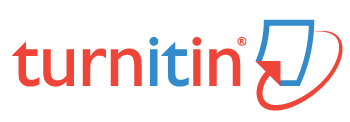Pengembangan Model Pembelajaran Sentra dan Lingkaran Berbasis Pendidikan Inklusi Untuk Taman Kanak-kanak (TK)
Keywords:
Center and Circle Learning, Inclusive EducationAbstract
This study aims to develop a center and circle learning model based on inclusive education in the form of learning modules that can be applied by teachers in kindergarten. This research was conducted to overcome the problems that arise, namely misinterpretation (wrong perception) towards the implementation of inclusive education. Therefore, a development of learning models is needed so that the goals of inclusive education can be achieved. Development of this learning model uses steps proposed by Borg & Gall. The research subjects were 5 kindergartens with 30 teachers as respondents. The instrument of data collection is an observation sheet that includes four dimensions, namely the feasibility of content, language, presentation, and graphics. Furthermore, the data analysis technique was obtained from the calculation of the percentage of the score of the observation sheet which then the results of these percentages were categorized based on criteria namely very weak, weak, sufficient, strong, and very strong. Based on the results of the analysis obtained content eligibility data of 70.8% with a strong category, language validation of 75.6% with a strong category, for presentation validation of 72.8% with a strong category, while for graphic validation is 76.4% with a strong category. This means that learning modules designed for center learning and inclusive education-based circles are classified as good / decent learning tools.
Downloads
References
Adiarti, Wulan. 2012. Pengaturan ruang kelas untuk inclusive preschool (Studi kasus di TK Al Falah Ciracas Jakarta Timur. Jurnal Pendidikan Anak. Desember 2012. Volume 1. Edisi 2.
Arifin, I. 2009. Kepemimpinan kepala PAUD dalam mengimplementasikan pembelajaran sentra: studi kasus PAUD/KB Unggulan Nasional Anak Saleh Malang. Yogyakarta: Aditya Media.
BSNP. 2006. Permendiknas RI No. 22 Tahun 2006 tentang Standar Isi untuk Satuan Pendidikan Dasar dan Menengah. Jakarta
Depdiknas. 2007. Materi diklat PCP BCCT. Yogyakarta: Direktorat PAUD, Ditjen PLPS.
DPR-RI. Undang Undang Dasar Negara Republik Indonesia Tahun 1945. Di akses pada tanggal 2 Februari 2017 dari http://www.dpr.go.id/id/uu-dan-ruu/uud45
Edunews.id. 2017. Jumlah ABK capai 1,6 juta anak, Kemendikbud dorong tumbuhnya sekolah inklusi. Edunews.id. Diakses pada tanggal 3 Februari 2017 dari www.edunews.id/edunews/pendidikan/jumlah-abk-capai-16-juta-anak-kemendikbud-dorong-tumbuhnya-sekolah-inklusi/
Loreman, Tim. 2007. Seven pillars of support of inclusive education: moving from ‘Why’ to ‘How’. International journal of whole schooling. Vol. 3, No. 2
Madjid, Abdul. 2007. Perencanaan pembelajaran. Bandung: Remaja Rosdakarya
Mangunsong, F. 2009. Psikologi dan pendidikan anak berkebutuhan khusus.Jakarta: Lembaga Pengembangan Sarana Pengukuran Dalam Pendidikan Psikologi.
Mulyatining, Endang. 2013. Metode penelitian terapan bidang pendidikan. Yogyakarta: Alfabeta
Pemerintah Provinsi Jawa Timur Dinas Pendidikan. 2012. Pedoman teknis penyelenggaraan pendidikan inklusif di Jawa Timur.
Permendiknas No 70 Tahun 2009. 2012. Permendiknas no. 70 tahun 2009 Tentang pendidikan inklusif bagi peserta didik yang memiliki kelainan dan memilki potensi kecerdasan dan/atau bakat istimewa.
Phelps, P. 2005. Beyond center and circle time: scaffolding and assessing the play of young children. Tallahassee, Florida:CCCRT.
Prawoto, Andi.2012. Panduan kreatif membuat bahan ajar inovatif. Yogyakarta: Divapress
Roopnarine, Jaipaul, L & Johnson, James, E. 2011. Pendidikan Anak Usia Dini dalam berbagai pendekatan. Jakarta: Kencana
Setyosari, Punaji. 2000. Metode penelitian pendidikan dan pengembangan. Jakarta: Kencanaih.
Stubss. 2008. Inclusive education : Where there are few resources. Norwey: The Atlas Alliance.
Sugiyono. 2010. Metode penelitian pendidikan: Pendekatan kuantitatif, kualitatif, dan R & D. Alfabeta: Bandung.
Sukmadinata, Nana Syaodih. 2010. Metode penelitian pendidikan. Bandung: Remaja Rosdakarya.
Undang-undang Sistem Pendidikan Nasional Republik Indonesia Tahun 2003. Wacana Aditya Bandung.
Yudhistira & Massardi, S.Y. 2012. Pendidikan Karakter dengan Metode Sentra. Bekasi Selatan: Media Pustaka Sentra








